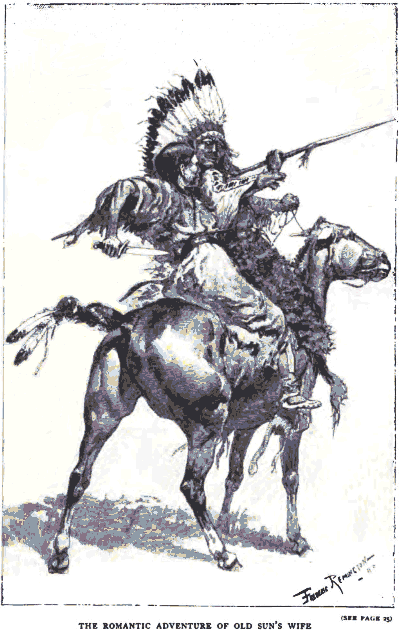
ON CANADA'S FRONTIER
Sketches
OF HISTORY, SPORT, AND ADVENTURE AND OF THE INDIANS, MISSIONARIESFUR-TRADERS, AND NEWER SETTLERS OF WESTERN CANADA
BY
JULIAN RALPH
ILLUSTRATED
NEW YORK
HARPER & BROTHERS, FRANKLIN SQUARE
1892
Copyright, 1892, by Harper & Brothers.
All rights reserved.
TO
THE PEOPLE OF CANADA
THIS BOOK IS GRATEFULLY DEDICATED BY THE AUTHOR WHO, DURING MANY LONGJOURNEYS IN THE CANADIAN WEST WAS ALWAYS AND EVERYWHERE TREATED WITH ANEXTREME FRIENDLINESS TO WHICH HE HERE TESTIFIES BUT WHICH HE CANNOTEASILY RETURN IN EQUAL MEASURE
PREFACE
If all those into whose hands this book may fall were as well informedupon the Dominion of Canada as are the people of the United States,there would not be needed a word of explanation of the title of thisvolume. Yet to those who might otherwise infer that what is here relatedapplies equally to all parts of Canada, it is necessary to explain thatthe work deals solely with scenes and phases of life in the newer, andmainly the western, parts of that country. The great English colonywhich stirs the pages of more than two centuries of history has for itscapitals such proud and notable cities as Montreal, Quebec, Toronto,Halifax, and many others, to distinguish the progressive civilization ofthe region east of Lake Huron—the older provinces. But the Canada ofthe geographies of to-day is a land of greater area than the UnitedStates; it is, in fact, the "British America" of old. A greattrans-Canadian railway has joined the ambitious province of the Pacificslope to the provinces of old Canada with stitches of steel across thePlains. There the same mixed surplusage of Europe that settled our ownWest is elbowing the fur-trader and the Indian out of the way, and islaying out farms far north, in the smiling Peace River district, whereit was only a little while ago supposed that there were but two seasons,winter and late spring. It is with that new part of Canada, between theancient and well-populated provinces and the sturdy new cities of thePacific Coast, that this book deals. Some references to the North areadded in those chapters that treat of hunting and fishing andfur-trading.
The chapters that compose this book originally formed a series ofpapers which recorded journeys and studies made in Canada during thepast three years. The first one to be published was that which describesa settler's colony in which a few titled foreigners took the lead; theothers were written so recently that they should possess the sameinterest and value as if they here first met the public eye. What thatinterest and value amount to is for the reader to judge, the author'sposition being such that he may only call attention to the fact that hehad access to private papers and documents when he prepared the sketchesof the Hudson Bay Company, and that, in pursuing information about thegreat province of British Columbia, he was not able to learn that aserious and extended study of its resources had ever been made. Theprincipal studies and sketches were prepared for and published inHarper's Magazine. The spirit in which they were written was solely thatof one who loves the open air and his fell